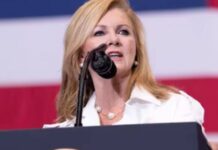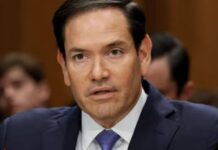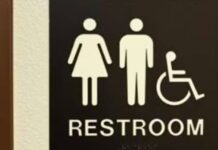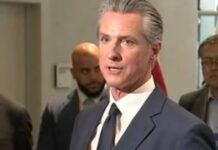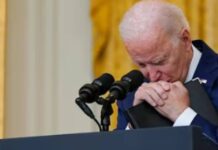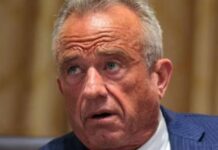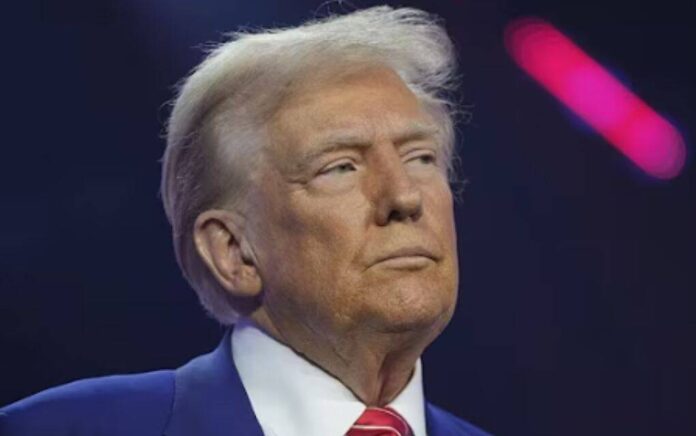
Donald Trump is no stranger to controversy. He takes on the Washington, D.C. like no one else will.
Now President Trump has taken the gloves off to shred the D.C. Swamp creatures getting in his way.
Trump Defends Tariff Strategy Amid Criticism, Highlights Economic Vision
Former President Donald Trump launched a sharp critique against what he called “incompetent, corrupt politicians” in a fiery statement Thursday morning, staunchly defending his controversial tariff policies. Trump has consistently pushed for heavy tariffs on imports from key U.S. trading partners, a move that has drawn widespread concern from business leaders and economic analysts who argue these measures will increase costs for American consumers, despite Trump’s assertion that they will boost national revenue.
Bipartisan lawmakers have voiced opposition, warning that Trump’s tariffs could reignite inflationary pressures. In a Thursday morning post on Truth Social, Trump doubled down on his approach, emphasizing the role of tariffs in revitalizing the U.S. economy.
“Tariffs are making America GREAT & RICH Again. They were successfully used against the USA for decades and, coupled with really dumb, pathetic, and crooked politicians, we’re having a devastating impact on the future, and even the survival, of our country,” Trump wrote on Truth Social.
He further claimed that the economic landscape has shifted dramatically in America’s favor, stating, “Now the tide has completely turned, and America has successfully countered this onslaught of Tariffs used against it. ONE YEAR AGO, AMERICA WAS A DEAD COUNTRY, NOW IT IS THE “HOTTEST” COUNTRY ANYWHERE IN THE WORLD. CONGRATULATIONS TO ALL!”
On Wednesday, Trump outlined new tariff measures, including a 25% tax on imports from India, citing their high tariffs on U.S. goods. He also introduced tariffs on Brazil, copper imports, and low-value shipments under $80, while reducing a proposed 25% tariff on South Korea to 15%. Additionally, Trump justified a 50% tariff on Brazilian imports, pointing to their legal actions against former President Jair Bolsonaro and their treatment of U.S. social media firms. He also closed a loophole allowing duty-free entry for goods under $800, primarily from China.
The South Korea deal includes commitments for the country to purchase $100 billion in U.S. energy resources and invest $350 billion in U.S.-controlled projects, personally selected by Trump. Meanwhile, agreements with Pakistan focus on developing its oil reserves, and Treasury Secretary Scott Bessent updated Trump on ongoing trade discussions with China.
Millions of Americans Trust Trump Over the D.C. Establishment on the Economy
Donald Trump’s economic policies, particularly his tariff-heavy approach, resonate with millions of Americans who view him as a decisive leader willing to challenge the entrenched D.C. establishment. His appeal stems from a deep-seated distrust in traditional political elites, whom many perceive as prioritizing global interests over domestic prosperity. Trump’s rhetoric about restoring American greatness through protectionist measures taps into frustrations with decades of trade policies that critics argue have hollowed out manufacturing and blue-collar communities.
Economic data from the Bureau of Economic Analysis shows that during Trump’s first term, U.S. GDP growth averaged 2.5% annually (pre-COVID), with unemployment dropping to a 50-year low of 3.5% in 2019. These figures bolster his supporters’ belief that he can deliver tangible results, unlike career politicians who they see as mired in bureaucracy. Trump’s tariffs, while controversial, are viewed by his base as a bold stand against countries like China, which they blame for job losses in industries like steel and manufacturing.
A 2025 Gallup poll indicates that 54% of Americans trust Trump more than Democratic leaders on economic issues, particularly among working-class voters. This trust is rooted in his outsider persona and his willingness to confront global trade imbalances, even if it means short-term price increases. Supporters argue that tariffs protect American workers by incentivizing domestic production, citing the resurgence of steel plants in states like Ohio and Pennsylvania during his first term.
Critics, including economists from the Brookings Institution, warn that tariffs could raise consumer prices by 2-3% annually, disproportionately affecting low-income households. Yet, Trump’s supporters counter that the long-term benefits—job creation and economic self-reliance—outweigh temporary costs. They point to his recent negotiations with South Korea and Pakistan as evidence of his deal-making prowess, securing billions in foreign investments for U.S. industries.
The D.C. establishment, including bipartisan lawmakers and think tanks, often advocates for free trade policies that prioritize global economic integration. However, many Americans associate these policies with factory closures and wage stagnation. A 2024 Pew Research study found that 62% of Americans believe free trade agreements have harmed manufacturing jobs, fueling support for Trump’s protectionist stance.
Trump’s ability to communicate directly with voters, through platforms like Truth Social, bypasses traditional media filters, which many of his supporters distrust. His claims of turning America into the “hottest” economy resonate with those who feel ignored by coastal elites. For instance, his closure of the “de minimis” loophole on low-value imports from China is seen as a direct strike against foreign competitors flooding U.S. markets.
Small business owners, particularly in the Midwest, express confidence in Trump’s economic vision. A 2025 National Federation of Independent Business survey found that 68% of small business owners believe Trump’s policies, including tariffs and deregulation, create a more favorable environment for growth. His emphasis on energy deals, like the $100 billion South Korea agreement, is viewed as a boost to domestic industries.


